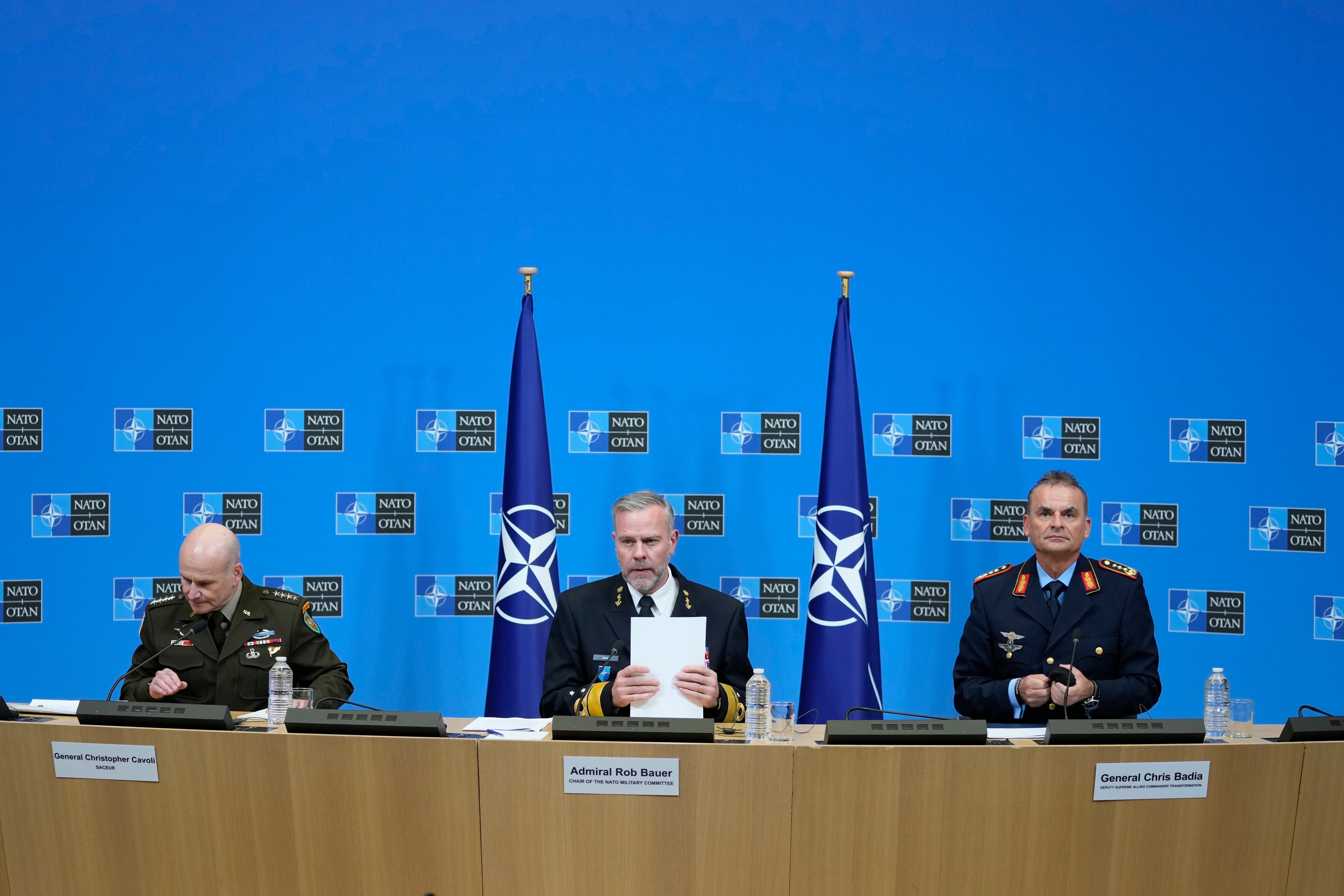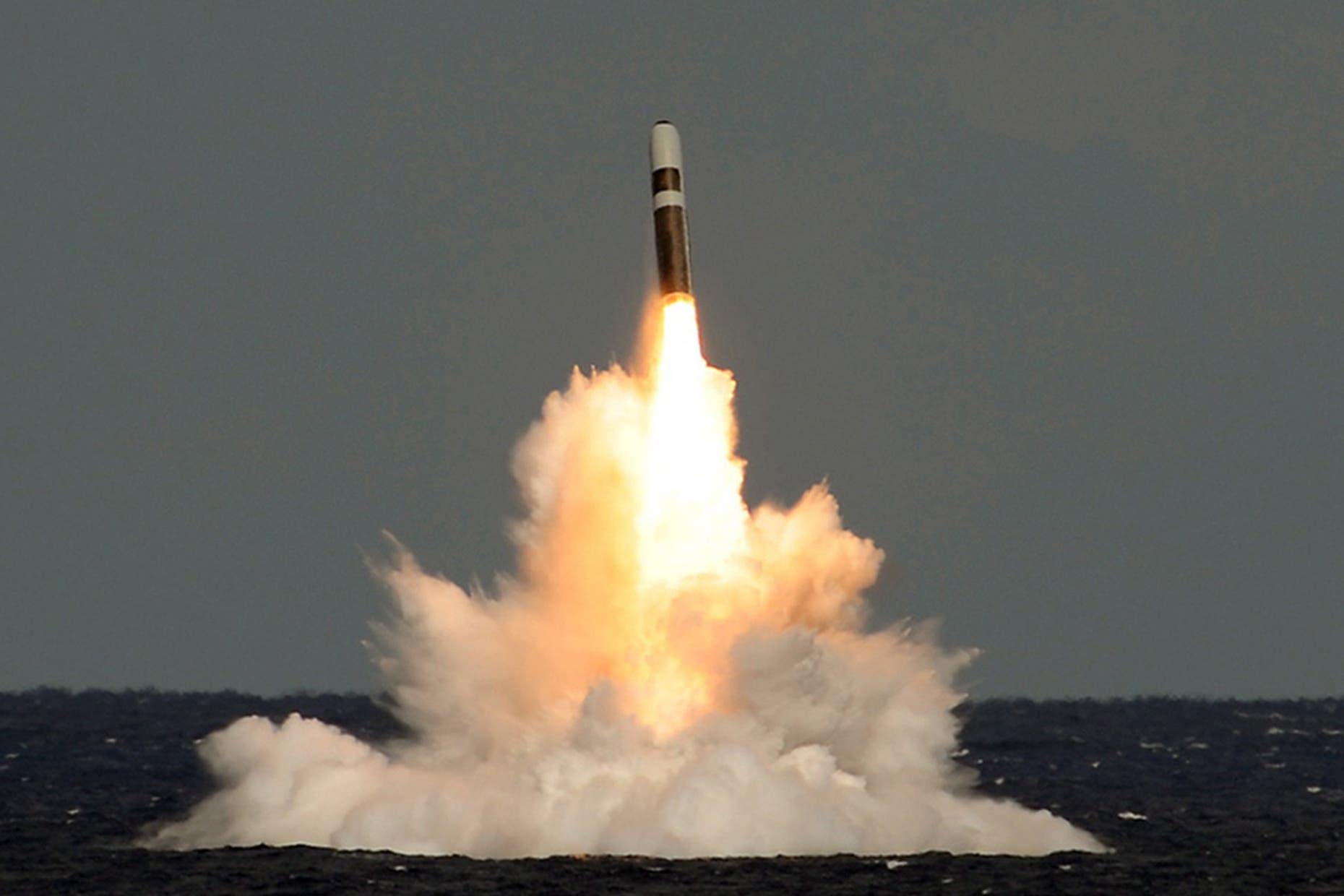Are we heading for World War Three – and is Britain’s military ready?
If this new ‘axis of evil’ framing is correct, then the ongoing promise of dangers today and new equipment tomorrow will leave the United Kingdom vulnerable, writes Andrew Dorman. But given there are so many other calls for public expenditure, the alternative is a dramatic change in British foreign policy

Grant Shapps, the Conservative’s seventh defence secretary since 2010, channelled his inner George W Bush to deliver his own “axis of evil” speech at Lancaster House this week. Russia, China, North Korea and Iran were named as “belligerent autocratic states” that, alongside their proxies such as the Houthis in Yemen, are currently threatening Britain and more broadly the West’s interests.
This was followed by alarming headlines on Friday that the West should prepare for all-out war with Russia within the next 20 years. Admiral Rob Bauer, a senior Nato official, said countries needed to build capacity to produce weapons to sustain a lengthy conflict. And not only that – governments should be talking to their citizens about mobilisation, more reservists and even conscription.
In Shapps’s words – as echoed by Admiral Bauer – we have moved “from a post-war world to a pre-war world.”
Are you alarmed yet?
While the defence secretary’s language was stark, its conclusions do reflect a trend within successive national security strategy documents dating back to 2015. The preceding 2010 document, produced by the coalition government, had announced major reductions in Britain’s defence capabilities as part of the government’s wider austerity measures. The rationale had been that the UK would not engage in any new conflict for the next decade.
Five years later, however, following the Arab Awakening, Russia’s illegal annexation of Crimea and the Syrian civil war, the Conservative government identified international terrorism and Russia as the immediate threats to the United Kingdom. By 2021 Boris Johnson’s Integrated Review added China to the mix, viewing it as a strategic competitor and signing the Aukus defence treaty with the US and Australia as part of a bid to contain the threat. Shapps’s speech this week therefore marked the final stage in the articulation of a “them and us” narrative.
It also raises two important questions for us.
First, are we heading for some form of World War Three? In his book Destined for War, the US academic Graham Allison looks at the inevitability of a war between China and the United States. Drawing on history he argues that on most occasions when there is a change in the dominant state, a war ensues. The obvious exception was the transition from the 19th century period of British dominance aka pax Britannica to post-1945 US dominance – pax Americana – in the 20th century. Currently, the rhetoric coming from both China and the US suggests that this will not be an exception and Shapps clearly views China as part of a hostile bloc.
A different view comes from John Ikenberry, a leading US academic on globalisation. Writing in the latest edition of International Affairs, Ikenberry argues in a similar vein to Shapps about a global West, largely comprising the leading democratic states, competing with a global East, comprising the mainly autocratic states like China and Russia, for the rest of the world, or global South.
Both views (and a number of others wrestling with the world of today) beg the question of whether competing interests, be that East and West, haves and have-nots, or some other categorisation, mean that some form of regional or global conflagration is just around the corner.
The answer is not certain. On the one hand, the sheer cost of war and the risks of inevitable destruction for both sides appear to be getting higher. For game theorists and those who emphasise rationality, deterrence and its ilk still provide a mechanism to either deter or limit violence. They argue that India and Pakistan’s possession of nuclear weapons means that the regular flare-ups and occasional actual conflict are inevitably kept to an even level because the price of escalation for both is just too high. In this regard, Shapps was keen to emphasise the importance of the UK’s nuclear deterrent and the £31bn modernisation programme that is currently going ahead.

Yet, at the same time, Shapps also argues the likes of North Korea and Iran cannot be trusted to act rationally. They therefore need to be contained, and in the case of Iran, prevented from acquiring nuclear weapons. This looks like someone trying to have his cake and eat it.
If rationality can no longer be assumed (especially with unpredictable personalities like Kim Jong-un), then the reliance on deterrence becomes problematic. If neither the naughty step (deterrence via the threat of punishment) nor the withholding of a parent’s love (deterrence via the threat of denial) does not work, one can be left with a toddler having a meltdown and limited options.
This leads on to the second question – how prepared is the UK to meet the challenges before it? Here Shapp looks at the nation and her armed forces through rose-tinted spectacles.
In many ways the UK retains military capabilities that few others possess. The deployment of warships to the Red Sea to defend international shipping and the airstrikes on Yemen represent a capability that few other states have. Yet they also demonstrate the limitations of Britain’s military capabilities.
The two Type 23 frigates and a Type 45 destroyer deployed to the Red Sea remind us how much the Royal Navy has shrunk. The frigates were originally designed to serve for 18 years and are now expected to last for nearer twice that. The Type 45 destroyer is still to have a reliable power plant installed and remains under-armed with a plan to add additional air defence missiles still to be implemented.
Moreover, the navy is unable to resupply these ships at sea with additional self-defence missiles because the government sold off two ships to Egypt in 2021 – and the one remaining ship is undergoing refurbishment. Their replacements have only recently been ordered with the first not due for delivery until the next decade.
Similarly, the Typhoon squadron based in Cyprus that supported the strikes on Yemen is also tasked with escorting British planes flying in international airspace in the Black Sea and also counterterrorism operations over Syria.
Overall, Britain’s armed forces remain short of personnel, with equipment delayed and defence housing that has been under-invested in for more than a decade. Shapps’ optimistic tone covers up major shortfalls and the government’s pledge to increase defence spending to 2.5 per cent of GDP remains an aspiration.
If this new “axis of evil” framing is correct, then the ongoing promise of dangers today and new equipment tomorrow will leave the United Kingdom vulnerable. Investing in defence when there are so many other calls for public expenditure is a difficult challenge for the government but not without precedent. We just have to look at the levels of rearmament in the second half of the 1930s.
Alternatively, the United Kingdom could look to an alternative way of navigating these choppy waters but that would require a dramatic change in British foreign policy that has been largely consistent for the last 75 years.
Andrew Dorman is editor of International Affairs at Chatham House and professor of international security at King’s College London






Join our commenting forum
Join thought-provoking conversations, follow other Independent readers and see their replies
Comments